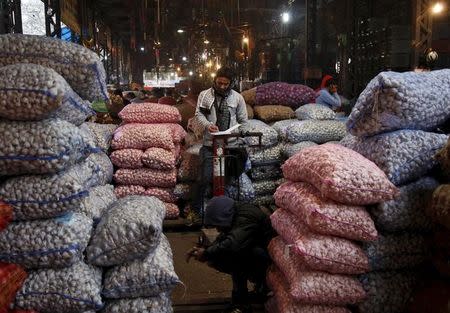Food ministry seeks $20 bln in subsidies for 2016/17 - source

NEW DELHI (Reuters) - India's food ministry wants 1.40 trillion rupees ($20.40 billion) in subsidies for the next fiscal year, a rise of 13 percent from the previous year, to run a mammoth food welfare programme after two successive droughts, said a senior government official. Although Prime Minister Narendra Modi is implementing the expensive food welfare plan approved by his predecessor Manmohan Singh, his government is trying to rein in overall subsidies to focus on investment in manufacturing and infrastructure. "In its previous budget, the government had allocated 1.24 trillion rupees as food subsidy for 2015/16 but we now need 1.40 trillion for next year. Let's see what's in store for us in the budget," the source, who did not wish to be named, told Reuters. On Monday, Finance Minister Arun Jaitley will present his annual budget for the 2016/17 fiscal year starting in April. The source also said there was an outstanding food subsidy bill amounting to about 560 billion rupees that still has to be settled by the finance ministry. The ministry expects the subsidy bills could be staggered over next 2-3 years. The previous Congress-led government approved the National Food Security Act (NFSA) in August 2013. India's 29 states and seven union territories had to implement it within a year. After missing several deadlines, most Indian states will roll out the NFSA, which promises ultra-cheap rice and wheat to 67 percent of India's 1.2 billion people, from April 1. ($1 = 68.51 rupees) (Reporting by Mayank Bhardwaj and Manoj Kumar; Editing by Michael Perry)

 Yahoo Finance
Yahoo Finance 